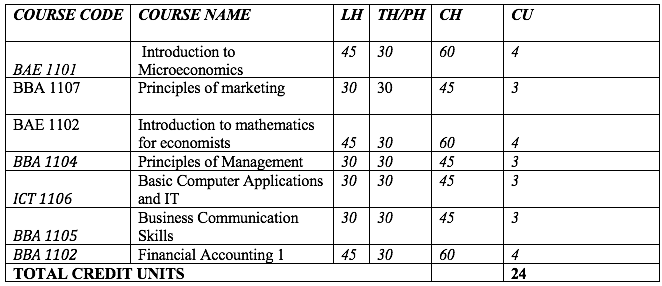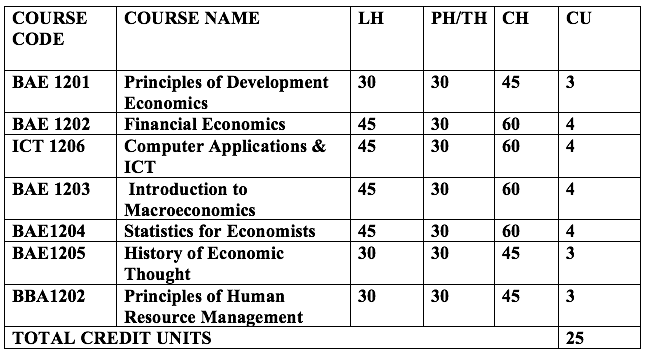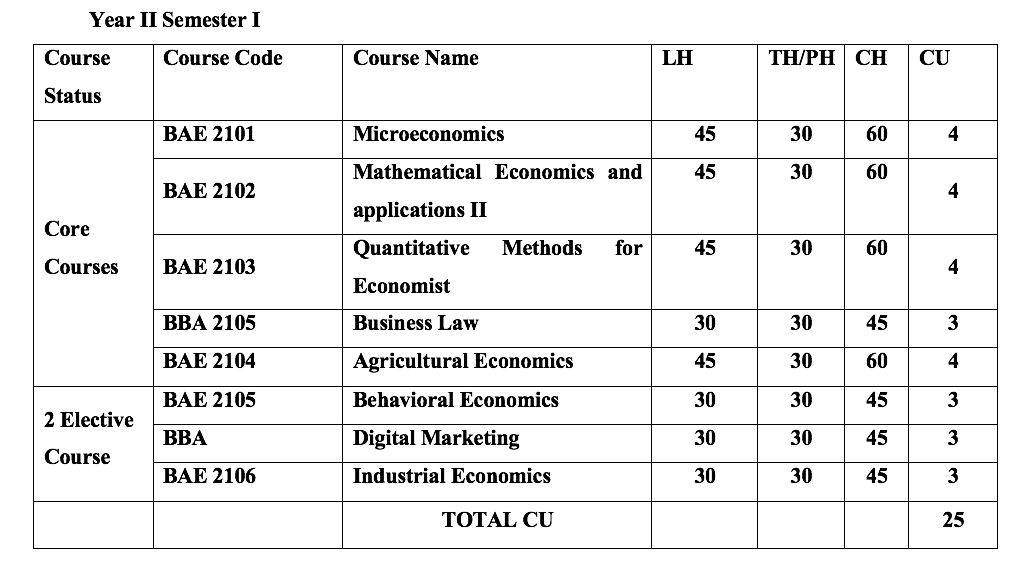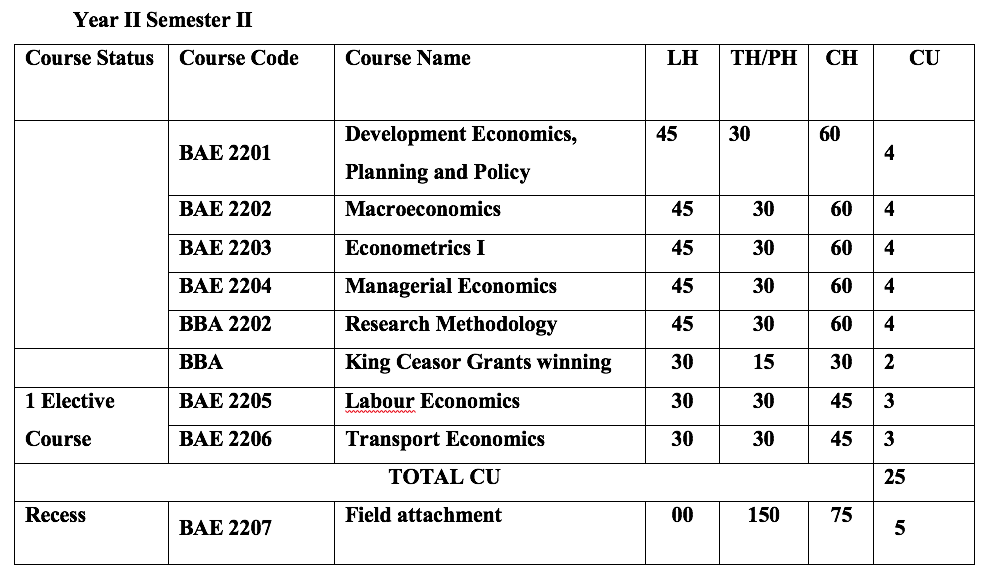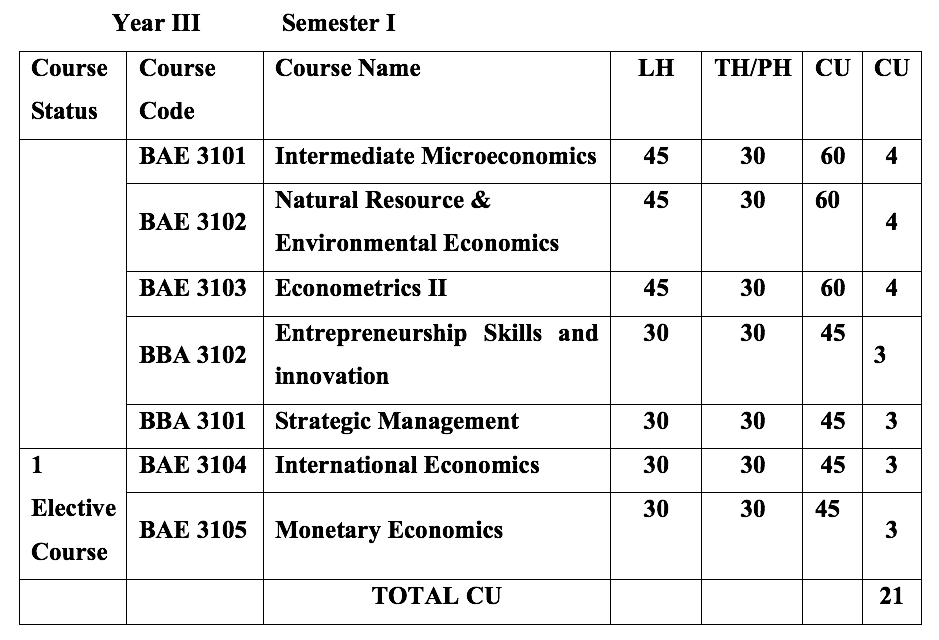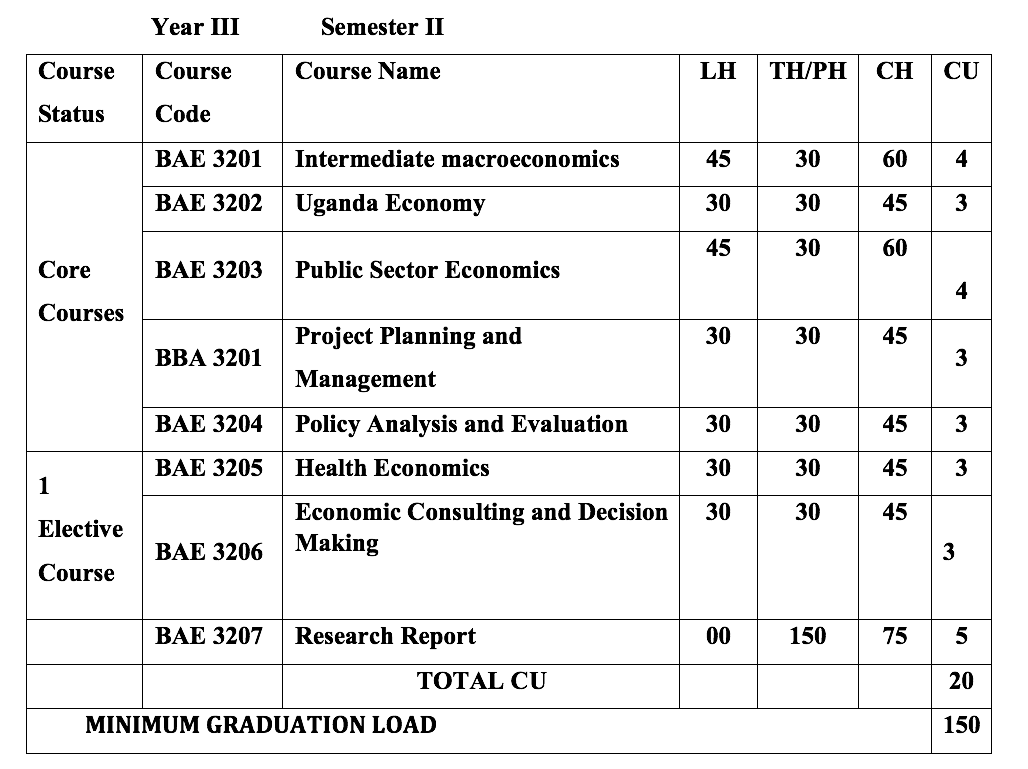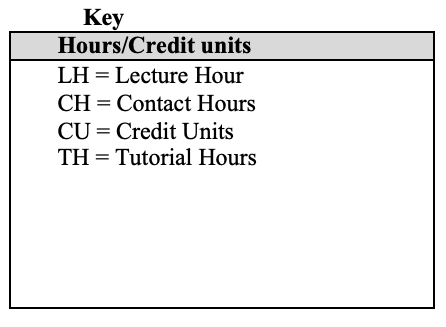
Ignite The Future
Applied economics is the application of economic theory to determine the likely outcomes associated with various possible courses of action in the real world, that is it’s using data, reasoning, and elements of economic theory to make informed decisions. By better understanding the likely consequences of choices made by individuals, businesses, and policy makers, they can be helped to make better choices.
The program therefore responds to a real need of training students to master modern tools and methods of economic analysis in order to use them to contribute effectively in the elaboration of efficient policies that address real world economic challenges.
Target groups
The duration of the programme is three (3) academic years which are subdivided into six (6) semesters of full-time study. Where by each academic year is comprised of two (2) semesters.
Direct Entry
For admission under the Direct Entry Scheme, a candidate must have:
i) The Uganda Certificate of Education or its equivalent
ii) Advanced level certificate with two (2) principal passes in Economics and other Science/Arts subjects obtained at same sitting / or its equivalent Essential Economics.
Relevant Second best done of the remaining A level subjects
Desirable Sub-maths, General Paper, ICT
Others All others
Diploma Holders Entry Scheme
A candidate shall be admitted to the Bachelor of Applied Economics Programme if she/he has at least a Second-Class Diploma award in any related business Studies from a recognized institution of higher learning from in or outside Uganda recognized by NCHE.
Mature Age Entry
For admission under the Mature Age Entry Scheme, a candidate must pass the Mature Age Entry Examinations of King Ceasor University for the Bachelor of Applied Economics Degree or any other nationally recognized entry exam by the National Council for Higher Education.
Higher Education Certificate Programme:
A Higher Education Certificate/Foundation Programme of at least a credit recognized by NCHE.
International Applicants
After the successful completion of this programme the student will reliably be able to acquire the following:
2. Analytical and Quantitative Skills:
3. Problem-Solving and Decision-Making:
4. Research and Methodological Competence:
5. Policy Analysis and Evaluation:
6. Global Perspective:
7. Professional Development:
Tuition fees for privately sponsored students shall be **** USD per semester. All students are required to pay other functional and non-functional fees as may be defined on admission.
Details of the Programme structure are specified below with Contact Hours (CH), Credit Units (CU); where 15CH = 1CU. Contact hours are in form of Lecture Hours (LH), tutorial hours (TH) or practical hours (PH). 1CH = 1LH OR 2T/PH
